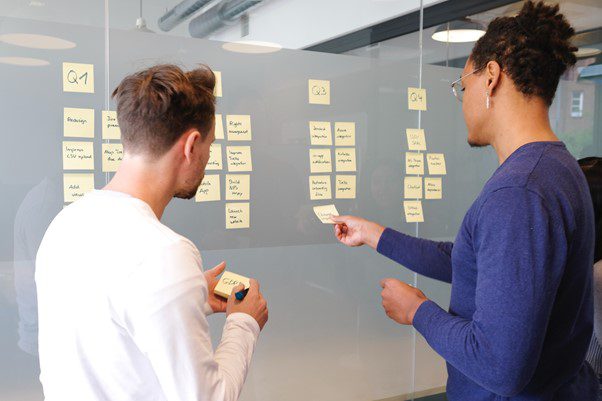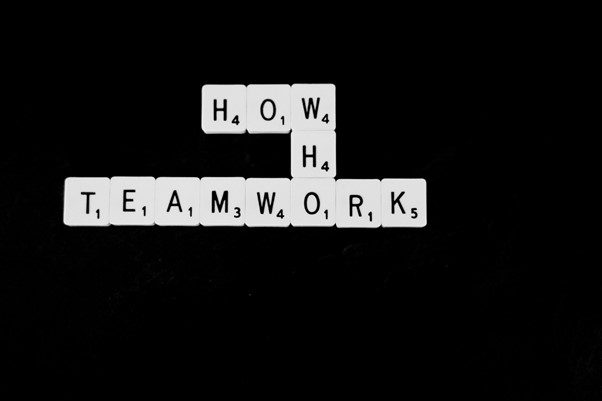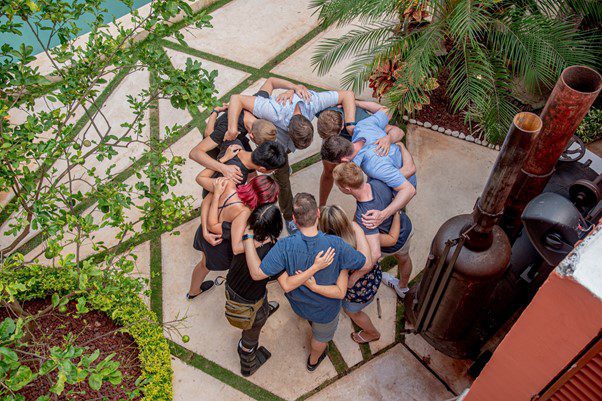Oftentimes managers focus on individual staff members’ skills and abilities to perform their jobs, and overlook the contribution of collective intelligence. Recent research on collective intelligence shows that it’s critical for good collaboration among team members, which can lead to problem solving and higher efficiency and performance.
So how then can managers help to build collective intelligence? And is it possible for remote teams to have collective intelligence? These are some of the frequently asked questions when it comes to managing team performance. MIT has been studying group collaboration for many years and have found that where staff are located isn’t as important as many assume in terms of collective intelligence. Instead it’s how the work gets done and who performs the work that really seems to matter.
Research shows that we can foster collective intelligence through remote work
According to MIT’s findings, “it’s not where we work that matters the most — it’s how the work is done and who is doing it”. By analyzing a study on collective intelligence in groups, by the National Academy of Sciences, they found that there was not much difference in the groups’ ability to effectively collaborate on tasks – between those who were remote versus teams that were in-office.
Instead, how the work was actually being done and who was doing it, was more important in terms of collective intelligence and effective collaboration. Specifically, it’s important for teams to identify who is best at different tasks and then allow that person to show leadership in that area. It’s likewise important to get teams to coordinate their efforts to ensure project completion.
That means that staff need to have the right skills for the job, and also the social skills and emotional intelligence (EQ) to collaborate effectively. It also means that employers don’t need to worry about remote work preventing teams from working collaboratively and effectively together. Instead, it just means that having good collaboration processes are important and hiring people with the right skills and emotional intelligence is also critical.

How can we build collective intelligence?
It’s clear that collective intelligence in teams is critical for effective collaboration which impacts on productivity. So how can we build collective intelligence in the remote workplace? According to the MIT study, several factors are important in cultivating group collective intelligence: diversity, social perceptiveness, sharing knowledge, hiring collaborative people and encouraging focused group-work or joint attention.
1. Team Diversity
Make sure that you have a diverse team, as that means you’ll have many different ideas about how to tackle problems that can be unique and innovative. Diversity helps to enhance collective intelligence and can also bring in a host of social networks and connections that can be useful in business. Gender diversity and specifically having more women on the team, can help to enhance collective intelligence.

2. Social Perceptiveness
Social perceptiveness and emotional intelligence (EQ) are all about how people can pick up and read non-verbal cues from others, and act accordingly.
The MIT study shows that people who are sensitive to their colleagues, and don’t dominate conservations but rather allow for taking turns, had better collective intelligence.
Generally that also means that you should try to avoid having people on your team who want to stand out and always take the limelight. And it’s best to also avoid having people who slack off and don’t do any work in a team. Instead, you need committed teammates who are sensitive and collaborative.

3. Share knowledge and intelligence
With diverse teams, you are bound to have differing skills, and different intelligence levels, as well as different acquired knowledge and different social networks. By working collaboratively, teams can share their skills and knowledge which builds the teams’ collective knowledge and ability to innovate and better find solutions. This in turn can help to enhance the team’s performance.
That’s why it’s good for managers to actively create measures and processes that encourage teams to share their knowledge and experiences. This can be done by encouraging open dialogue discussions and brainstorming sessions that allows everyone to have their say.
Individual team members also need to be enabled and empowered to to research and look for relevant information and then share it with the group.

4. Hire positive, collaborative people
Avoid hiring staff who are negative, domineering, non-collaborative and self-interested. Instead seek out people who will get on well with other staff and create a good team dynamic and team culture. These people should be open to working collaboratively, be positive and open, and should be team-players.

5. Encourage joint attention
By encouraging and enabling team members to share their thoughts, opinions and ideas about how to solve challenges, or about how best to perform certain tasks or roles, teams can build collective intelligence.
Often by discussing and collaborating on issues and tasks, teams can collectively achieve better performance than they could by working individually.
How to evaluate your teams’ collective intelligence
At a quick glance there are many ways you can check to see if your team is primed for having a good collective intelligence. Ask yourself the following questions to do a quick assessment:
- How diverse is your team? And specifically, is there a good gender ratio amongst your team?
- Are there established processes for your team to share information and collaborate on tasks?
- Does your team have a high level of social perceptiveness and awareness?
- Is there good team cohesion and a positive company culture?
- Does your team work together jointly on projects?
- Do you have a high staff turnover or high levels of staff retention?
- Do you have a company culture of hiring people who are collaborative, cooperative, and positive? And when you hire people, do you consider how they would get on and contribute towards the team dynamics – or do you only focus on their skills?
Workplace tools to enhance team effectiveness
In addition to the abovementioned factors that can enhance collective intelligence in the remote workplace, there are also a range of useful tools that can help to enhance team effectiveness.

These include:
● Communication & engagement tools
When you work remotely, good communication is even more important. It’s also vital to schedule time for effective communication. There are many nifty tech tools that enable better collaboration among remote teams.
These include tools like Zoom and Google Meet for hosting virtual check-ins and meetings. Tools like Slack also help team members to send direct messages or team messages and enables quick information sharing, opportunities for collaboration and the ability to pose questions.
● Project Management Tools
Apps like Trello have useful boards that let team members assign tasks, share updates and information and communicate via a range of devices.
Basecamp is another great project management tool that lets you collaborate and track progress of a range of projects all in one place.
● File and Info Sharing Tools on Virtual Drives
To optimize efficiency and standardize communication and information sharing, it’s useful to find one dedicated file sharing platform to use with your remote staff.
Tools like Google Drive are great for this, as long as you have a Gmail account. Virtual drives also help teams to manage projects better and record decisions and information.
● Time Management Tools
Tools that allow staff to virtually share their calendars, like with a Gmail account, also help to enhance productivity and efficiency.
They also help to create reminders for meetings and events and enable diary scheduling which can help you avoid getting double-booked for meetings.
There are also other tools like Timely that can be used to track how much time employees spend on different tasks, which can be useful in managing efficiency and productivity.
● Virtual team-building tools
Team building exercises in the remote work space can have many benefits. Thera are a large range of virtual team building tools that managers can use to create cohesive working environments that are conducive to collaboration and that foster a positive work culture. These include having professionally facilitated team building events, to having virtual coffee breaks during each day.
Final thoughts on remote work teams and collective intelligence
Knowing how collective intelligence can contribute to your teams’ performance can help managers of remote teams to foster and enhance this group dynamic and attribute.
Research has shown that teams that have better collective intelligence, tend to perform better, which is often what employers want their staff to do. This means that managers should not only focus on strengthening individual capacity and skills, but should look at team dynamics and better team effectiveness and collaboration in the workplace.
The good news for virtual employees from current research is that collective intelligence can be fostered whether the team is working at an office, or remotely. There just needs to be a focus on processes and team attributes that support enhanced collective intelligence.













